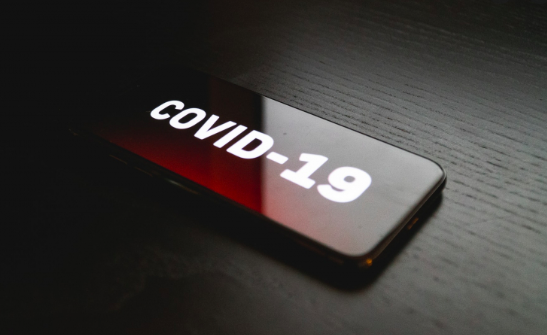COVID-19 has shifted people their opinions and concerns around the increasing use of Artificial Intelligence (AI) and robots. AI creates the possibility for machines to perform tasks like human-beings by learning from their experiences. AI can be applied in an endless way and wide variety of industries. Before the pandemic outbreak, people mostly saw AI and robots as the cause of job losses, privacy violations and several biases.
However, COVID-19 has also shown many people a different side of AI and robots. AI plays a role in reducing the spread of the virus and the use of robots in work has accelerated since people could no longer do their tasks due to lockdowns. This does not alter the fact that close attention still needs to be paid in AI and robot usage, as privacy issues and biases are still a concern. First, AI is based on large data sets and proven to be individual and societal bias sensitive. Second, COVID-19 might make relatively fast solutions and decisions regarding data collection necessary. According to Zelalem Temesgen (infectious diseases specialist), it is crucial to record contact history in reducing an epidemic. With a virus such as COVID-19, this is even more important because people without symptoms can afterwards also turn out to be infected. In addition, Temesgen also indicates the fact that the generated information can play a major role in further knowledge developments around the issue of how the virus is spreading.
Privacy matters still need to be taken seriously as multiple companies are setting up applications to track individuals in able to slow down the spread of the Corona virus.
For this reason, a team from the MIT Media Lab is designing and developing an open-source application platform with a privacy-first approach: The Safe Path platform. This platform includes both a telephone and web application and a so called “PrivateKit”. The latter offers users the option to connect their personal (smartphone-registered) location history to other users their anonymous blurred location histories. This allows a user to check whether he or she has been in the vicinity of someone who later turned out to be infected by the Corona virus. The application guarantees the privacy of both the user and the infected patients at all times. This is possible because users present their location history privately on their own smartphone and completely control their own data. In the future, all data will also be encrypted.
According to Raskar (team leader application development), the app has a privacy-first approach since the location and contact history will never leave a user’s smartphone without the them granting permission. Further, Safe paths is based on anonymous GPS tracking and Bluetooth, this improves traditional contact tracking and can only anonymously track interaction when both parties use the application.
Please let me know your thoughts on the use of such applications and their privacy related aspects, and whether you would be willing to download “The Safe Path Platform”.
References:
https://www.sas.com/en_us/insights/analytics/what-is-artificial-intelligence.html
https://sloanreview.mit.edu/article/ai-robots-and-ethics-in-the-age-of-covid-19/
https://news.mit.edu/2020/safe-paths-privacy-first-approach-contact-tracing-0410
https://www.investopedia.com/terms/a/artificial-intelligence-ai.asp

